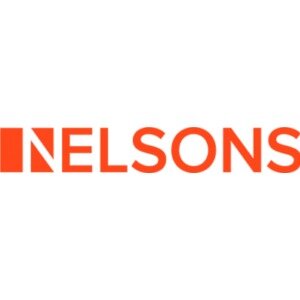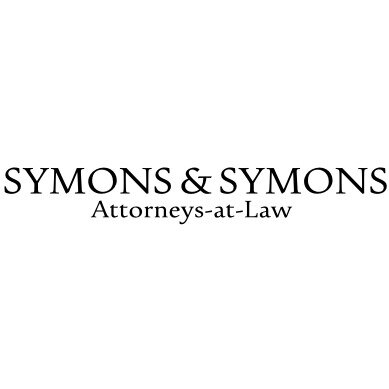Best Water Law Lawyers in Cayman Islands
Share your needs with us, get contacted by law firms.
Free. Takes 2 min.
Or refine your search by selecting a city:
List of the best lawyers in Cayman Islands
About Water Law in Cayman Islands
Water law in the Cayman Islands refers to the legal framework that governs the use, management, conservation, and distribution of water resources throughout the territory. As a small island nation, the Cayman Islands face unique challenges regarding freshwater resources, groundwater protection, desalination, waste water management, and environmental preservation. Water law encompasses regulations on water rights, supply, quality, and infrastructure, ensuring that the needs of the population, the environment, and the economy are balanced and protected.
Why You May Need a Lawyer
Individuals and businesses may require legal assistance with water law issues for a variety of reasons. Common situations include:
- Disputes over water rights or usage between neighbors, developments, or businesses
- Problems with water supply access or water quality affecting property or business operations
- Compliance with environmental laws and water quality standards for construction or development projects
- Challenges involving drainage, flooding, or water contamination claims
- Acquiring permits for water extraction or discharge
- Dealing with government agencies regarding water regulations, permits, or fines
- Negotiating contracts with water utility providers or service companies
- Legal issues related to rainwater harvesting, desalination, or water treatment systems
- Advice on obligations for water management as a property owner, developer, or business
A qualified water law attorney can help interpret the regulations, represent clients in disputes, assist with permit applications, and provide guidance on compliance.
Local Laws Overview
Water law in the Cayman Islands is influenced by a number of statutes, regulations, and policy frameworks, often administered by government agencies. Some of the key aspects include:
- The Water Authority Law (2018 Revision), which establishes the Water Authority of the Cayman Islands and governs water supply, sewage, permits, water quality standards, and enforcement
- The Water Authority Regulations, which provide additional operational and technical details for the management of water resources and waste water treatment
- Regulations on groundwater protection, including the use of wells, boreholes, and aquifers to prevent contamination and over-extraction
- Standards for desalination plants and use of reverse osmosis technology, since much of the Cayman Islands’ potable water is provided this way
- Requirements for developments to manage stormwater drainage to prevent flooding and protect coastal water quality
- Licensing and tariff regulations for companies that wish to provide water or waste water services
- Provisions for water conservation and drought management during periods of low rainfall
Enforcement of these laws is typically carried out by the Water Authority and other relevant environmental agencies.
Frequently Asked Questions
What is the Water Authority and what does it do?
The Water Authority is the regulatory agency responsible for the management, protection, and provision of water and waste water services in the Cayman Islands. It issues permits, sets water quality standards, oversees water supply infrastructure, enforces regulations, and manages environmental protection measures.
Do I need a permit to drill a well or borehole on my property?
Yes, you must obtain a permit from the Water Authority before drilling any well or borehole. The process involves submitting an application and may require environmental assessments to ensure groundwater protection.
Can I legally collect rainwater for household use?
Rainwater harvesting is generally permitted for non-potable uses, but there are guidelines to ensure storage, treatment, and use meet health and environmental standards. Large-scale systems may require approval from the Water Authority.
Are there restrictions on how much water I can use or extract?
Yes, there are restrictions to prevent over-extraction of groundwater and to protect the environment. Limits are set by the Water Authority, especially for commercial or agricultural users.
What can I do if my neighbor’s activity is polluting my water supply?
You should report the issue to the Water Authority, which can investigate and enforce regulations. Legal recourse may also be available through civil litigation or mediation.
Is desalinated water safe to drink in Cayman Islands?
Yes, water from licensed desalination plants is treated and tested to meet stringent drinking water quality standards set by the Water Authority.
Do businesses need special permits to discharge waste water?
Yes, any business that generates waste water must obtain a permit for discharge and comply with established treatment standards to protect public health and the environment.
How are water rates and tariffs regulated?
Water rates and tariffs are regulated by the Water Authority, which approves and sets fees for licensed water providers to ensure fairness and to fund infrastructure and maintenance.
What responsibilities do property developers have regarding water law?
Developers are required to comply with all water management, drainage, and infrastructure requirements, submit plans for approval, and obtain necessary permits before construction begins.
What are the penalties for violating water laws in Cayman Islands?
Penalties can range from fines and orders to remedy violations to more severe actions such as suspending operations, license revocation, or prosecution for serious or repeated offenses.
Additional Resources
If you require further information or official guidance on water law matters in the Cayman Islands, consider consulting the following resources:
- Water Authority of the Cayman Islands - main regulatory body for water and waste water management
- Department of Environment - oversight of environmental protection related to water resources
- Planning Department - for water-related permissions on new developments
- Licensed legal firms specializing in environmental and property law
- Cayman Islands Government Gazette - for updates on laws and regulations
Next Steps
If you need legal assistance with a water law matter in the Cayman Islands, follow these steps:
- Gather all relevant documents, permits, correspondence, and evidence relating to your issue
- Identify the specific issue you are facing - for example, a permit denial, a dispute, or a regulatory compliance matter
- Contact a local attorney or legal firm with experience in water law or environmental regulations
- Prepare a list of questions and desired outcomes to discuss during your consultation
- Check with the Water Authority or relevant government agency for any public guidance or policies that may affect your situation
Promptly addressing water law issues with the help of a qualified professional can help ensure compliance, protect your rights, and prevent costly disputes in the future.
Lawzana helps you find the best lawyers and law firms in Cayman Islands through a curated and pre-screened list of qualified legal professionals. Our platform offers rankings and detailed profiles of attorneys and law firms, allowing you to compare based on practice areas, including Water Law, experience, and client feedback.
Each profile includes a description of the firm's areas of practice, client reviews, team members and partners, year of establishment, spoken languages, office locations, contact information, social media presence, and any published articles or resources. Most firms on our platform speak English and are experienced in both local and international legal matters.
Get a quote from top-rated law firms in Cayman Islands — quickly, securely, and without unnecessary hassle.
Disclaimer:
The information provided on this page is for general informational purposes only and does not constitute legal advice. While we strive to ensure the accuracy and relevance of the content, legal information may change over time, and interpretations of the law can vary. You should always consult with a qualified legal professional for advice specific to your situation.
We disclaim all liability for actions taken or not taken based on the content of this page. If you believe any information is incorrect or outdated, please contact us, and we will review and update it where appropriate.
Browse water law law firms by city in Cayman Islands
Refine your search by selecting a city.

















